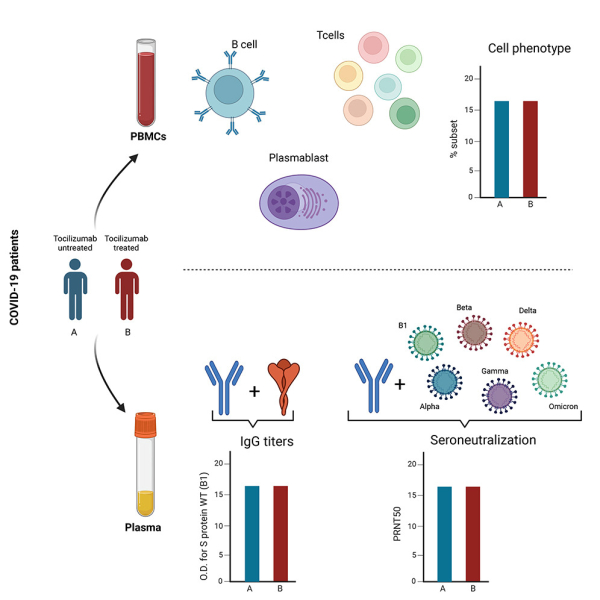
Research@IIT Palakkad, explained: On immunotherapy in COVID-19 patients
Short-term tocilizumab immunotherapy in COVID-19 patients does not
compromise the ability of the patients to mount protective immune
responses
Inflammatory cytokine storm is the characteristic feature of severe and critical
COVID-19 patients. Therefore, immunotherapies that aim at nullifying the
inflammation were used during pandemic. Tocilizumab monoclonal antibodies
that target receptor for IL-6 inflammatory cytokine has proven their efficacy at a
clinical level in severe and critical COVID-19 patients. Traditionally, tocilizumab
has been used for treating the autoimmune diseases and long-term use of
tocilizumab in these patients is associated with declined immunoglobulin IgG
levels, autoantibodies and memory B cells. These reports thus suggest that
tocilizumab therapy in COVID-19 patients might compromise the protective
antibody response to SARS-CoV-2. However, there is little evidence on the
consequence of this immunotherapy towards ability of the patients to mount
protective immune responses against SARS-CoV-2.
To address this outstanding question of public health importance, Prof.
Jagadeesh Bayry, in collaboration with Pasteur Institute and various hospitals in
and around Paris, studied 69 vaccine-naïve COVID-19 patients. Nine patients
(37.5%) from the severe COVID-19 patients’ group and 11 (45.8%) from the
critical group received tocilizumab therapy either once or twice. Overall, it was
observed that short-term tocilizumab therapy does not impair the antibody
response, the ability of patients’ antibodies to neutralize of SARS-CoV-2
ancestral strain and variants alpha, beta, gamma, Delta and Omicron. The
distribution of B lymphocyte subsets (the cells that produce antibodies) and T
lymphocyte subsets (that help in mounting antibody responses and cellular
immune responses) in tocilizumab-treated convalescent COVID-19 patients was
similar to untreated patients despite a clinical response. Therefore, short term
tocilizumab therapy can be effectively used in the future for any cytokine-storm
associated infectious diseases.
The data are published recently in the Cell Press journal iScience
https://www.sciencedirect.com/science/article/pii/S2589004223002018






